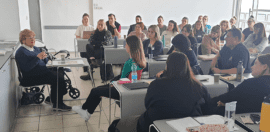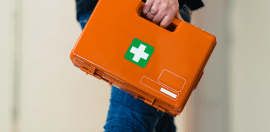Australia Ranks 21st in Best and Worst Countries to be a Girl

11 October 2016 at 11:35 am
A new report – published on the International Day of the Girl Child – on the best and worst countries to be a girl, reveals that Australia has been outranked by countries including Serbia and Slovenia and placed at a lowly 21st out of 144 nations.
The report Every Last Girl: Free to Live, Free to Learn, Free From Harm includes a Girls’ Opportunity Index which measures countries against five indicators: early marriage, adolescent pregnancy, maternal mortality, women in parliament, and secondary school completion.
The report said the two major factors contributing to Australia’s poor rating were the low proportion of women in parliament and a relatively high teen pregnancy rate.
Child welfare agency Save the Children spokesperson Sarah Carter said Australia had a long way to go when it comes to having equal representation of men and women at the top of politics.
“Presently there are only 39 women in Australia’s House of Representatives. That’s just over a quarter – 26 percent to be exact. We can and must do better especially when so-called developing countries like Rwanda have achieved 64 percent female representation,” Carter said.
“Gender equality is not only a human right but is imperative for achieving inclusive and sustainable development. Central to this is ensuring women’s equal participation in the political process and promotion within political parties. All options should be explored to increase the representation of women in parliament, including potentially following the lead of the 50 plus countries that have legislated candidate quotas for women.”
The United States which represents the world’s largest economy also performed relatively poorly ranking at number 32 and below Algeria.
A total of 20 developing countries in sub-Saharan Africa were ranked the worst for girls, with places like Niger, Chad, Central African Republic, Mali and Somalia performing poorly across all five indicators.
According to the report, some low income countries performed relatively well compared to their peers. For example, Nepal which was rocked by a devastating earthquake last year was revealed to have a relatively good middle school completion rate for girls, which, at 86 per cent, is similar to Spain’s.
Taking top honours, Scandinavia led the way, with Sweden, Finland and Norway ranked first, second and third respectively, with room for improvement on female MP representation and middle school completion.
It comes as another not-for-profit report, released Tuesday, has found that sexism is still rife across Australia with nine in 10 Australian girls not treated equally to boys.
The key finding in a survey of 600 Australian girls aged 16 to 19 years commissioned by not for profits Our Watch and Plan International Australia found that Australian girls think sexism is preventing them from fulfilling their potential.
The Everyday Sexism: Girls’ and Young Women’s Views on Gender Inequality in Australia report outlines girls’ views on discrimination and sexism at home, at school, and in their private and public lives.
Less than one in 10 girls (8 per cent) feel they are always treated equally to boys and only one in six girls (14 per cent) say they always received the same opportunities to succeed as boys.
One in three girls said they always did more housework than their brothers. And one in three also believed it would be easier to pursue their dream career if they were male.
Only one girl out of six said they were always respected for their talents rather than their physical appearance.
Plan International Australia Deputy CEO Susanne Legena said sexism is an “insidious, pervasive and serious societal issue in Australia”.
“What these girls are telling us is that inequality starts early and is everywhere – in our homes, in school, and on the streets. It’s gravely concerning that girls, in 2016, are saying they don’t feel valued for their intellect and their opinions,” Legena said.
“We know there is a pocket money gender gap and that many girls do more housework than their brothers. It’s up to all of us – parents, teachers, men, boys, women and governments – to ensure girls and young women are respected, valued, encouraged and supported, and always treated as equals to boys and young men.”







